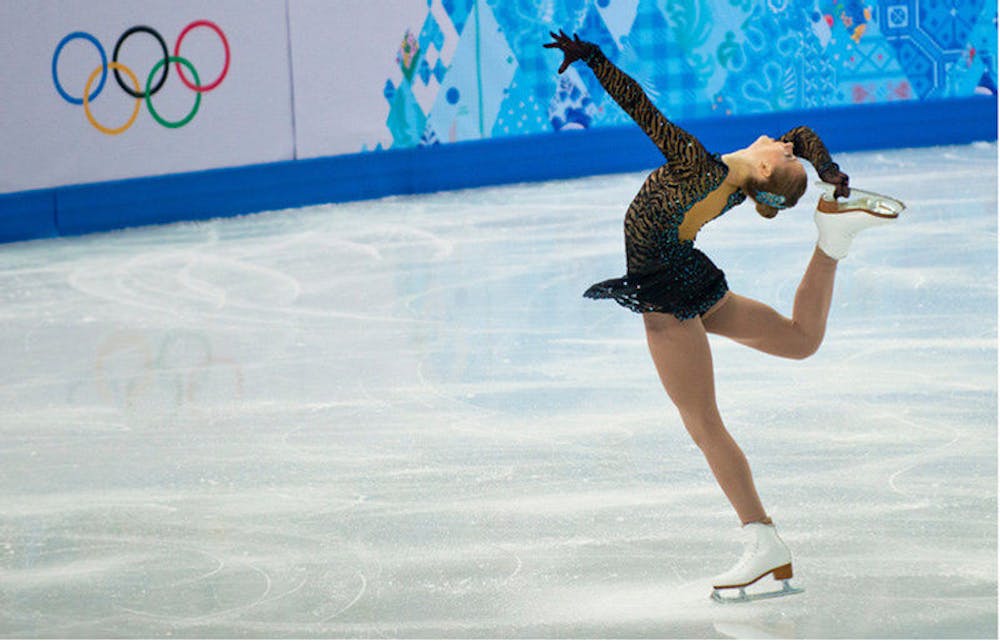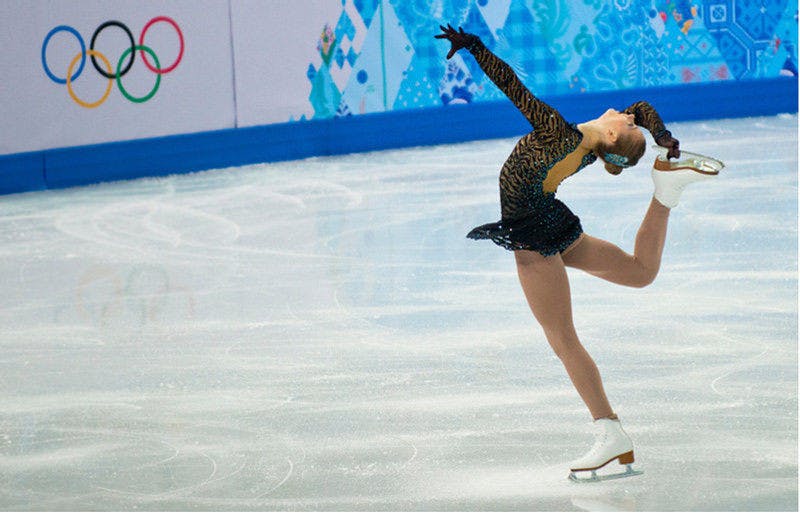United States figure skater Mirai Nagasu became the first U.S. woman to ever land a triple axel at the Winter Olympics last weekend. But odds are, many people here in the U.S. probably did not see it.
Roughly 61 percent of U.S. citizens said they do not plan on watching the Winter Games this year, and only 39 percent said they plan to watch a “fair amount,†according to Gallup News.
The reasons vary for why people are not as interested in the Winter Olympic games here, but Scott Changnon, a multimedia producer at NBC Sports Chicago, is covering the games from South Korea and said this year’s Winter Games lack star power. In addition, Changnon mentioned it’s very expensive to travel to Pyeongchang, South Korea.Â
“Your average American sports fan is engrossed in the major pro sports teams in their state or region,†Changnon said. “The primary winter sport in the U.S. that has a professional league is the NHL. This Winter Olympics, unlike the last in Sochi, does not have current NHL players representing their country.â€
Changnon said many hockey players playing in the games will be new to hockey fans in the U.S. NHL stars like Patrick Kane, Jonathan Toews and Sidney Crosby are not on the ice this year. He said at the end of the day, it is about name recognition.
“This has to be household names of the athletes,†Changnon said. “Most of the top NBA players are involved giving basketball fans a basketball fix while the NBA is in the offseason.â€
He said all the big names from PGA and tennis are also involved in the Summer Olympic Games, which will tend to draw more interest from fans in the U.S.
Support is not only low in the poll Gallup News conducted but also in South Korea. Changnon said finding a U.S. citizen at the Olympics is difficult.
“Compared to fans from other countries, Americans are pretty slim to find,†Changnon said. “Most I’ve met are either here working for the games or watching a family member.â€
There is also a 14-hour time difference between the time zone in Memphis and in South Korea. More U.S. citizens can become engaged with the games despite the time difference. Now with social media, fans can see what is happening in real time from tweets of the reporters covering the games.
“I think as the games unfold, social media helps gain interest,†Changnon said. “Guys like Matt Hamilton with the mixed doubles U.S. curling team was a no-name before his first Olympic competition. All it took was one photo and video getting to social media of him with his mustache that made him look similar to Super Mario, or KC (Kansas City) Chiefs head coach Andy Reid, to go viral. Before you know it, everyone tuned in to see him compete and cheer him on.â€
Changnon said without having those stars fans are accustomed to seeing from a league like the NHL, it’s important for the Olympics to have a social media presence to engage people who are not watching.
Changnon is not the only one noticing the limited number of U.S. citizens in South Korea at the games. Helene Elliott, sports columnist for the Los Angeles Times, said it is mostly family and friends of the athletes.
“This site is very far from North America,†Elliot said. “It’s probably easier for Americans to go to the Summer Games, as many people have vacation in the summertime and might be more likely to plan a trip to the Olympics as part of their vacation.â€
However, Elliott said in terms of the Summer Games versus Winter Games, it is more about them being relatable to viewers.
“The Winter Games are difficult to promote,†Elliott said. “Many of the sports are played in only cold-weather areas. Everyone has run or gone swimming or played basketball at some point in their lives and can identify with those Summer Olympic sports. Not everyone has gone skating or knows what luge and bobsled are.â€





